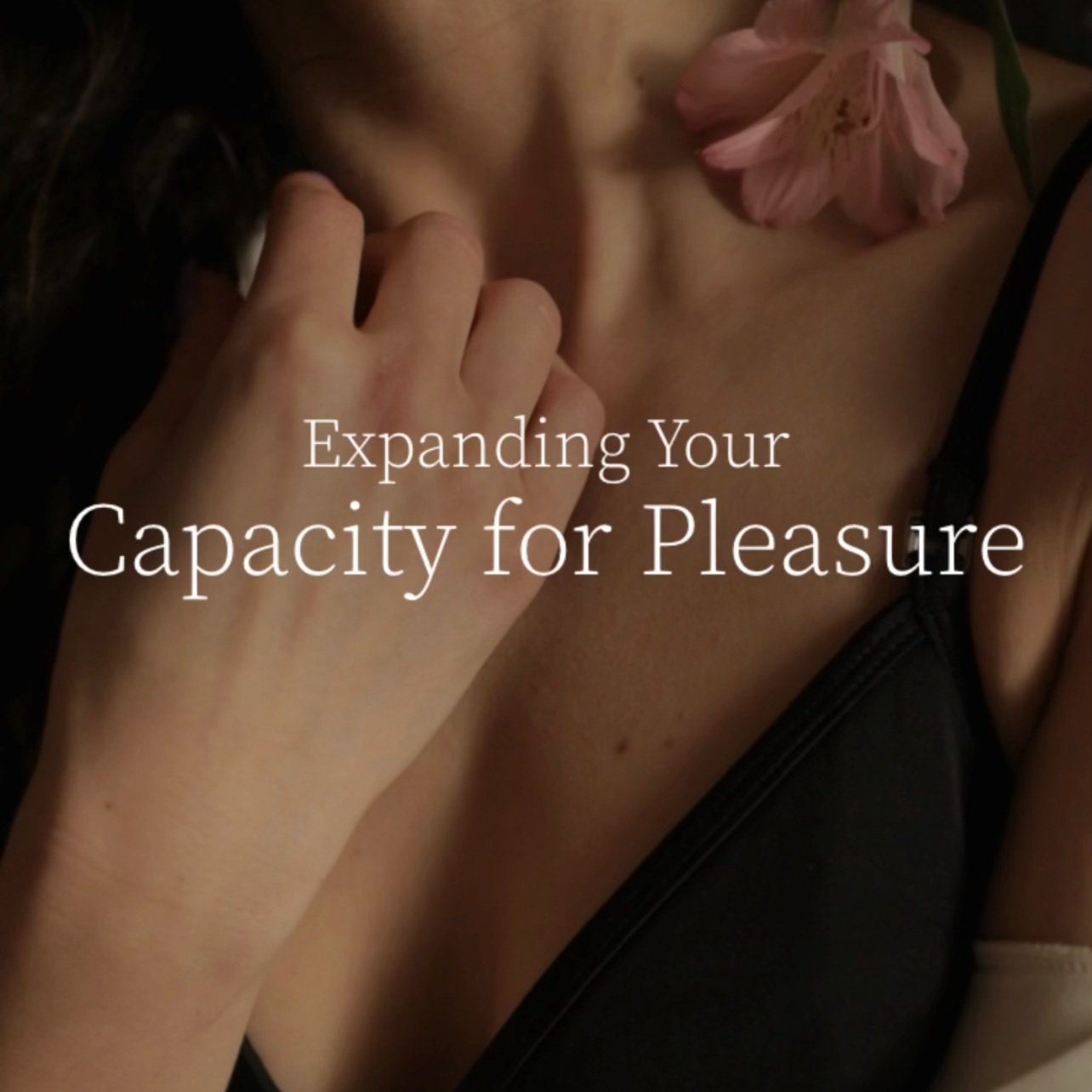U is for Unity: How to Create a Unity Vision Statement for Your Relationship
/Whether you have been in your relationship for 2 years or 20, it’s important to have a shared idea of the values that are important to both of you in your relationship. A wonderful way to do this is by creating a shared Unity Vision Statement for your relationship. Many of you may be married and had wedding vows that focused on just this. But what often happens is those words get said on the wedding day and they then get tucked away in a sock drawer somewhere literally or figuratively. For everyone, I want you to take a closer look at what the unity of your relationship means so it’s easier for you and your partner to move through your relationship with intentionality for a love that lasts.
Supporting Your Love with Shared Values
A Unity Vision Statement allows you both to have a clear understanding of what you are working toward in your relationship. We cannot rely on love to carry you through your relationship from year to year. Yes, that is one piece of it and a part of what initially solidified your bond together. But we can’t rely on love all on its own. That’s like having a big carriage and expecting one horse to keep it moving forward. Sure if there’s a downhill, like at the beginning of a relationship, the moving is easy. But once things level out and bumps, rocks, and muddy ditches start to occur on the road, that solo horse has no chance. I can’t help but think “yikes” for the poor guy!
So let’s give him some buddies to help him out. Let’s add in more areas of focus to help carry that relationship carriage great distances. These are the values you both have in a long-term relationship. It contains your relationship values in multiple areas of life to guide you on how you show up in your relationship, what you do, how you spend your time, and how you make decisions. Below are areas to get you started and some suggested resources to support you.
Self-Care
G is for Groundedness: Using Intentional Breathing and Focus for Relationship Happiness
T is for Transition: Four Transitions of Intimacy for Optimal Desire
Emotional intimacy
F is for Five Love Languages: Building Emotional Intimacy in Your Relationship
L is for Love with Balance - The Importance of Balancing Interests to Sustain Love
Physical/Sexual intimacy
E is for Expectations: How to Minimize the Pressures of Sexual Performance
I is for Intentional Intimacy: How Depending on Spontaneity Will Kill Your Relationship
R is for Responsive Desire: The Dominant Type of Desire for Most Women
Financial
Spiritual
Parenting
Social/Fun Activities
Health and Lifestyle
Time with Family/In-Laws
Growth/Learning
First, I want you and your partner to write out in one sentence what you value in the areas above. Write things in the positive rather than the negative. For instance, rather than saying “we don’t fight” you could write, “we work on a positive communication cycle and seek help when we get stuck”. After you each write out your own statement to each item below, share yours with each other. I know this can be a vulnerable thing to go, but vulnerability is a vital component of your relationship and is something we will explore in more depth next week. By being vulnerable and sharing your values, you get to create one statement for each area together to make up your Unity Vision Statement for your relationship.
Keeping Realistic Expectations
Realistic expectations mean that you are advocating for your needs while at the same time understanding they will not be met with perfection. As I’ve mentioned in the past, you are not a superhero and neither is your partner. Mind-reading doesn’t happen and perfection doesn’t either. So we want to have realistic expectations. For example, if in the health and fitness area of your Unity Vision Statement you both decide “We eat healthy and engage in regular physical movement”, I don’t want you to expect either from yourself or your partner that you both, without fail, will always eat healthy and exercises regularly. We have ups and downs in like and therefore we want to give permission for being human. We can’t expect all in your Unity Vision to be in full bloom all the time. There may be times when your partner isn’t as health-focused or the sexual intimacy may dip for a bit, like after having a baby, but you want to be careful not to focus in just on this time in the relationship.
Consider this story about a father and his four sons regarding the seasons of life and relationship.
There was a man who had four sons. He wanted his sons to learn to not judge things too quickly. So he sent them each on a quest, in turn, to go and look at a pear tree that was a great distance away. The first son went in the winter, the second in the spring, the third in summer, and the youngest son in the fall.
When they had all gone and come back, he called them together to describe what they had seen. The first son said that the tree was ugly, bent, and twisted. The second son said no--it was covered with green buds and full of promise. The third son disagreed, he said it was laden with blossoms that smelled so sweet and looked so beautiful, it was the most graceful thing he had ever seen. The last son disagreed with all of them; he said it was ripe and drooping with fruit, full of life and fulfillment.
The man then explained to his sons that they were all right, because they had each seen but one season in the tree's life. He told them that you cannot judge a tree, [or yourself or your relationship] by only one season, and that the essence of who you are--and the pleasure, joy, and love that come from that life--can only be measured at the end, when all the seasons are up. If you give up when it's winter, you will miss the promise of your spring, the beauty of your summer, fulfillment of your fall. Don't let the pain of one season destroy the joy of all the rest.
How to Keep the Marriage Carriage Going
First, know that being married isn’t a prerequisite for doing this work with your partner. You may be in a long-term relationship now with future plans to get married. Or you and your partner have decided together you don’t want to get married, and that’s OK too! I just like the rhyming of marriage carriage and kind of proud of myself for that one… Anyways, whether you are married or not, keeping a long term relationship going strong needs the intentionality of checking in on the direction you both are heading.
Your Unity Vision Statement you create gives you the first draft of how you both show up in your relationship but this draft needs constant revisions. Notice how I said it’s a draft. It’s not the final, sein stone document. Expecting you both to be the same people, and therefore have the same needs each and every year of your relationship is not a good assumption to lean on. You are both continuously growing and your relationship deserves the same attention so that you both are in things together long-term. We live long lives now and so we have many years the relationship carriage will travel when we think about a long term relationship. It’s not like the old days where if we lived past 30 we were considered ancient. You have years ahead of you and so it’s important to understand that your relationship will evolve and so will your shared Unity Vision Statement for your relationship.
Checking in, then, is important to make sure you both aren’t going off in some willy nilly direction without the other. I like to think of those three-legged races that you perhaps did as a kid on field day. When you are in a relationship you are connected together but you each have an individual side. You need to make sure you are pacing together so you stay together and avoid falling down. If one of you individually speeds up, you both fall down. If one of you turns in another direction and gets distracted by something, like an awesome new job opportunity, and you chase after it like a dog after a squirrel, you both fall down. Falling down isn’t a problem per say. That's going to happen. When you fall, get back up and focus on just one thing to get back on track, using your Unity Vision Statement as your guide. But the check-ins minimize the fall downs so that you don’t get too many ouches along the way or veer too far away from your partner.
When do I want you to check in on your relationship? First is daily. I don’t want you to keep your Unity Vision Statement crumpled away on a piece of paper in the kitchen junk drawer. Instead, display it in your home, perhaps nicely typed out and in a frame in your living room. This daily reminder as you pass by will catch your eye on what’s important in your relationship. Next, I would suggest to check in and read your statements together monthly as a reminder of your vision together. And don’t just expect this to happen. Mark it on your calendar and create a coffee date or happy hour with your partner to discuss how you both are doing on the focus of your Unity Vision Statement.
Then, I would do a bigger sit-down yearly to see if what you both have written down as your Unity Vision Statement still applies. Don’t just set your intentions and then forget about them. What tends to happen is we set our vows for the wedding and we don’t check in. I don’t want you to check in ten years from now and realize you both evolved in different directions. Once a year. No exceptions. Mark your calendars now and I want you to post below your check-in date to hold yourself accountable!
Things to Remember
Create a Unity Vision Statement to guide your relationship
Don’t rely on just love to carry your relationship carriage
Keep realistic expectations
Appreciate the seasons of your relationship
Have monthly and yearly check-ins
Hey ladies! Don’t forget to sign up and download your FREE Women’s Guide to Intentional Intimacy: Four Essential Elements of a Love that Lasts


































